In any challenging 21st century academic environment, the extra/co-curricular clubs and activities’ academic weight is more than crucial because of their complementary and differentiated nature and their integration with the curricula and learning objectives, within and outside the classroom. At Hua Quan Village, we built and generated an extra/co-curricular layer of education which is fully integrated within all International and National Schools curricular standards and facilitated by a team of experienced educators.
Our Extra/co-curricular program is flexible and diverse and can serve all types of curricular trends and approaches worldwide (European, British, Chinese, American, etc.), this unique program is governed by a multi-layered curricular model and guided by a complete horizontal integrational approach called “One Subject Called Knowledge. This is accomplished via Inquiry/STEAMS Project based learning and a facilitating environment where differentiation is the key game changer.
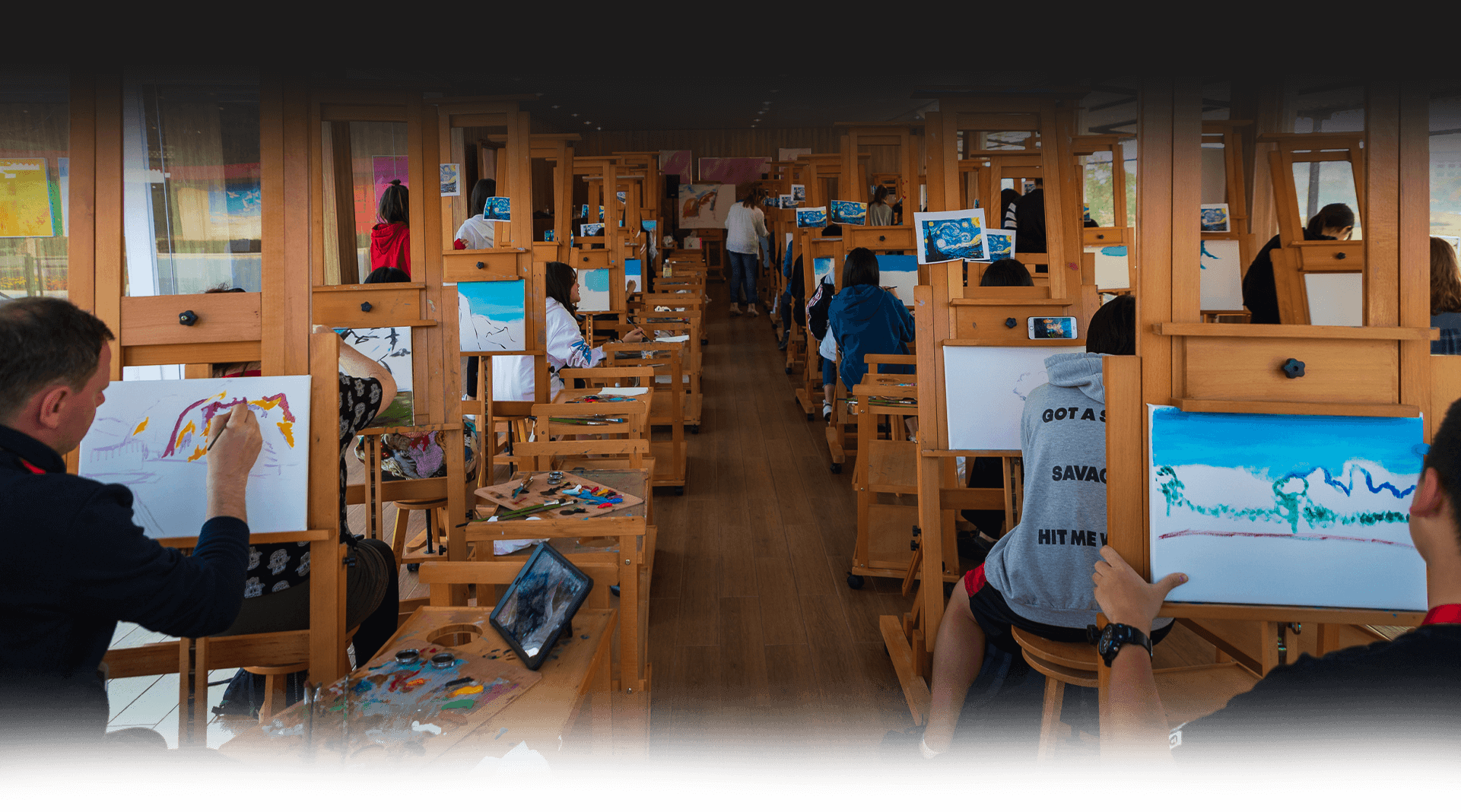
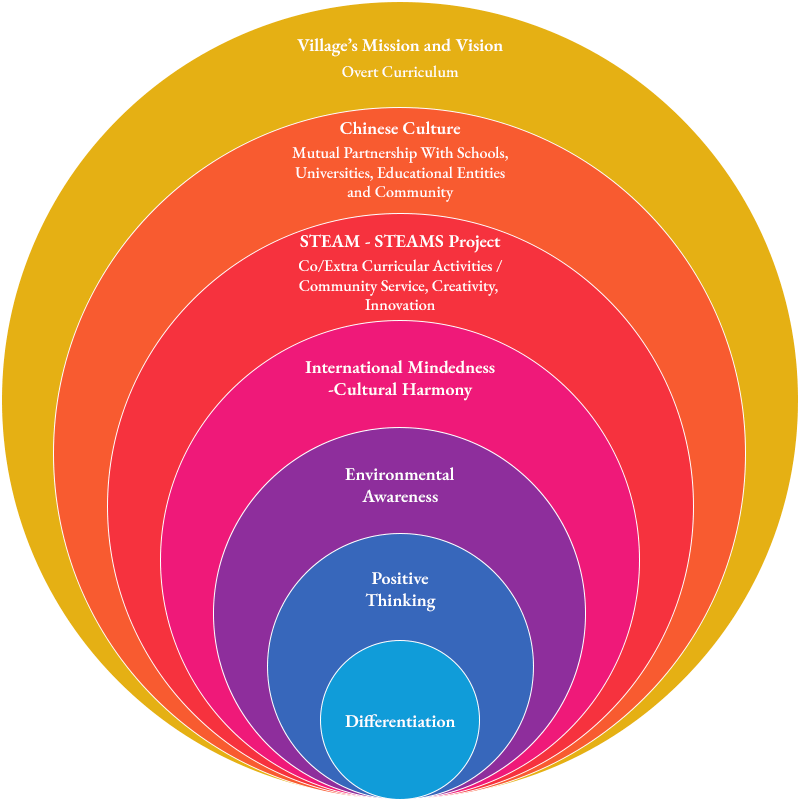
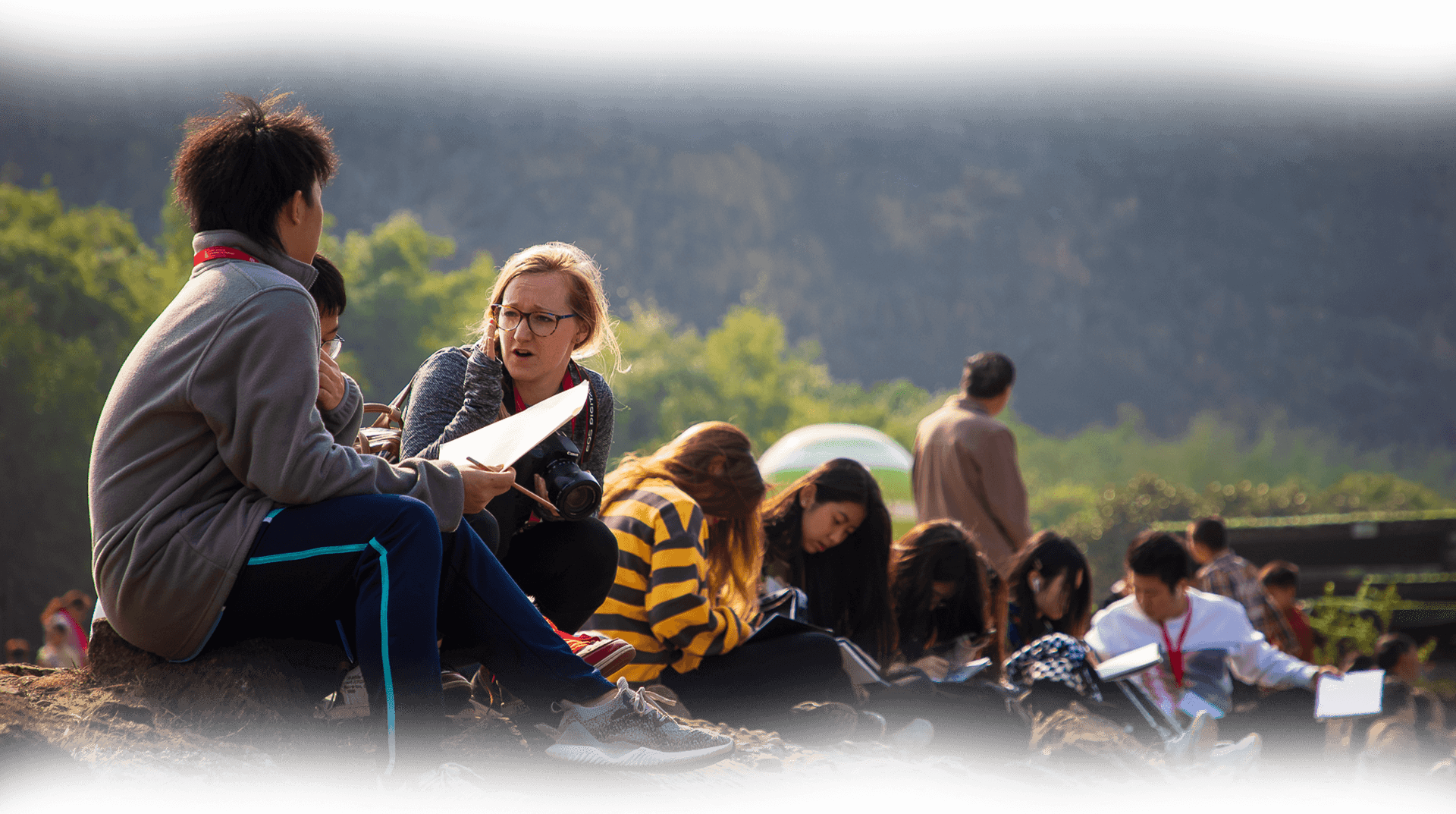
Our teachers are called facilitators who create a facilitating and learning environment based on real-life modeling techniques and approaches to make sure that students find the relevance between their real-life needs and their studied material. Our Facilitators facilitate the inquiry of knowledge and acquisition of skills to our students by facilitating one subject called “Knowledge”, with real-life relevant topics, STEAMS Projects and within a needed multi-layered curricular approach.
We defined 8 major learning outcomes to be reached through our twenty-four clubs and Creativity-Innovation-Action-Community Service Integrated Activities.
Those learning outcomes are rather different than assessment objectives because they are not rated on a scale. For our educational partners (schools, universities, educational entities), the “completion decision” in relation to each student is, simply, an answer to the question, “Have these outcomes been achieved?”
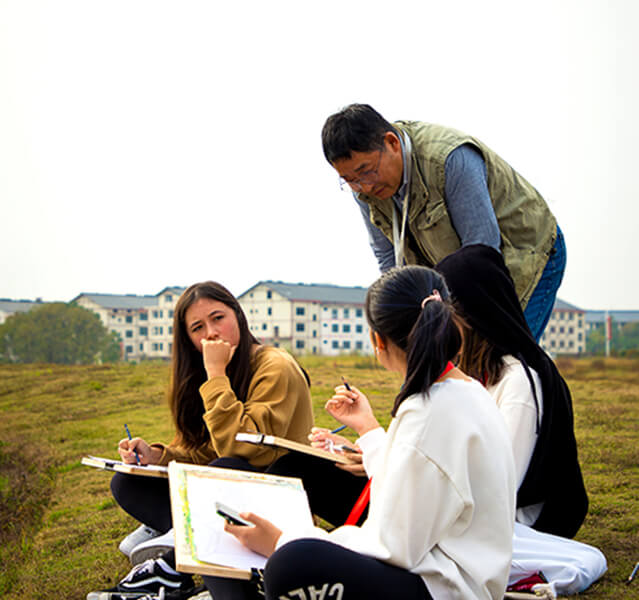
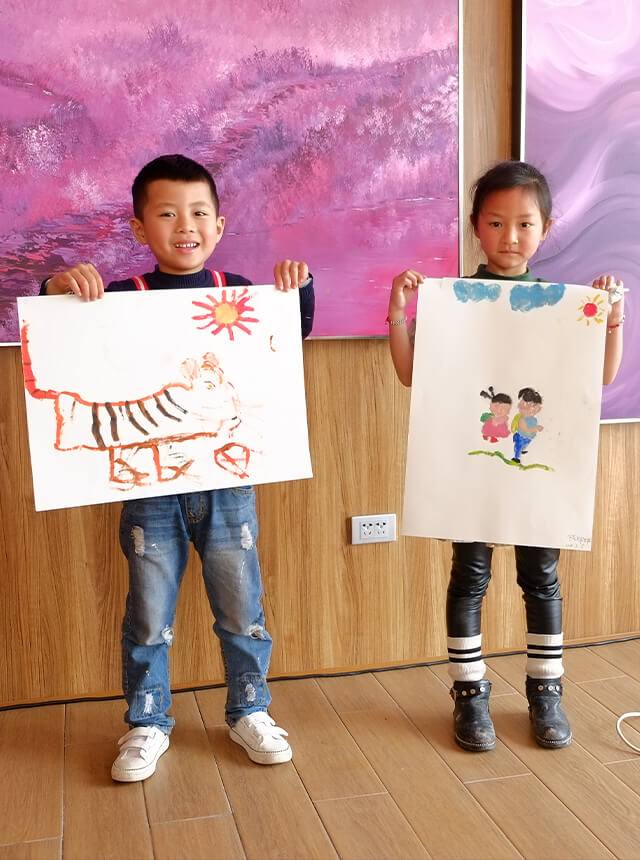
As a result of the students’ Clubs and Creativity-Innovation-Action-Community Service experience as a whole, including their reflections, STEAMS creations, and related evidence, students will: